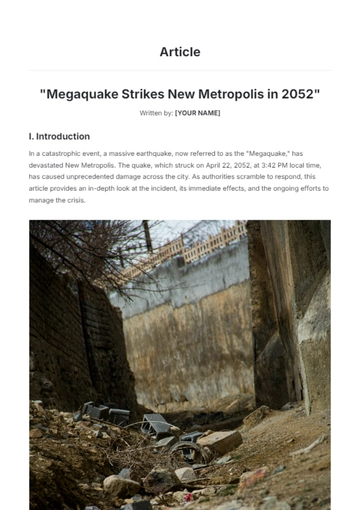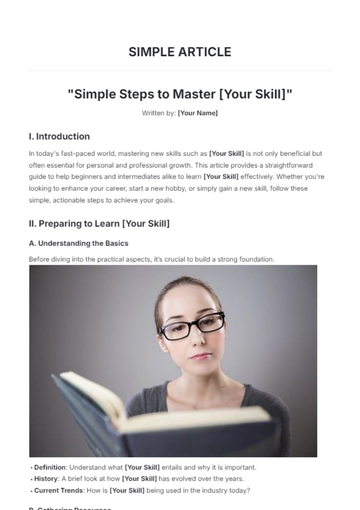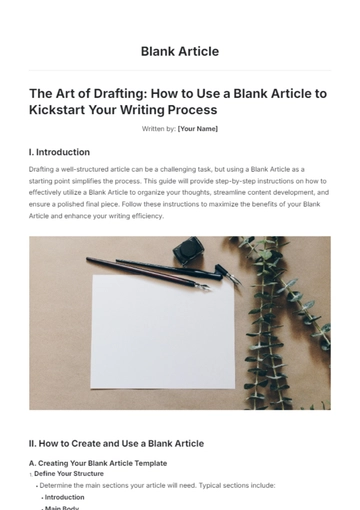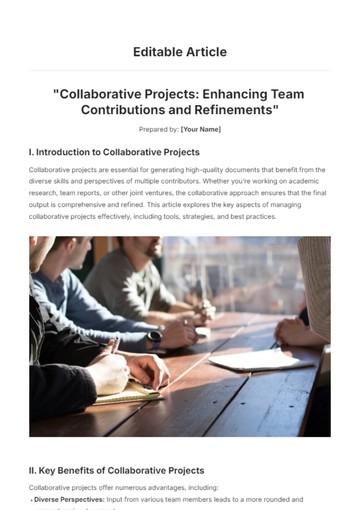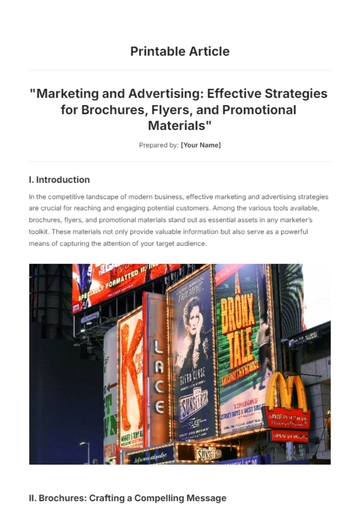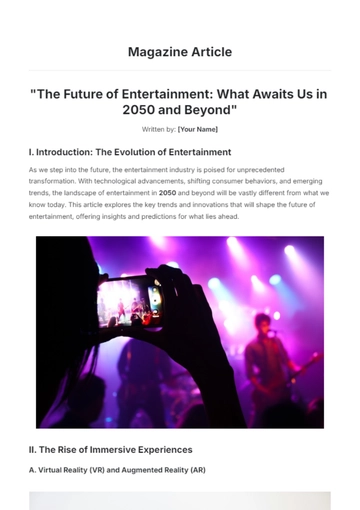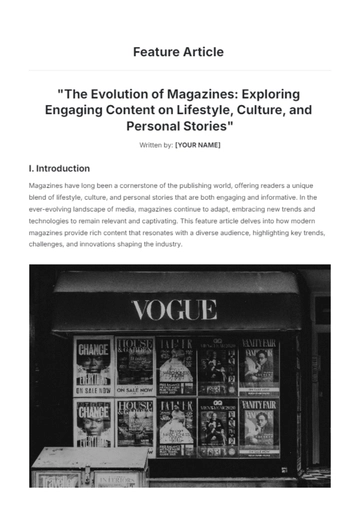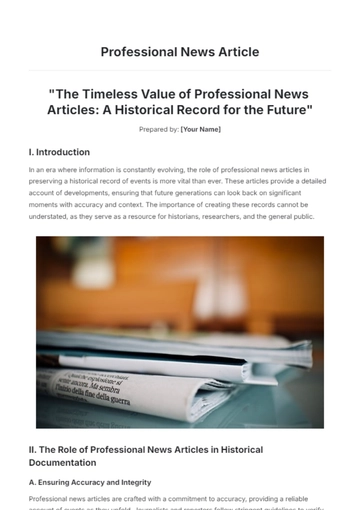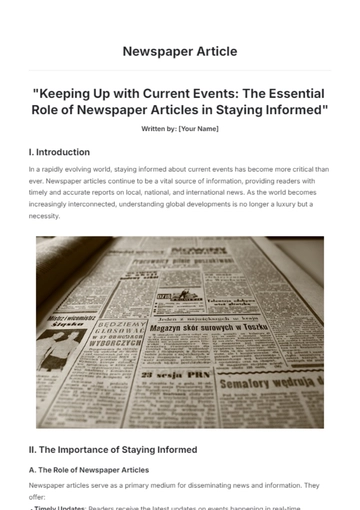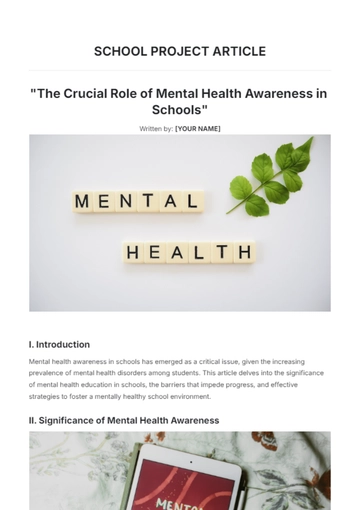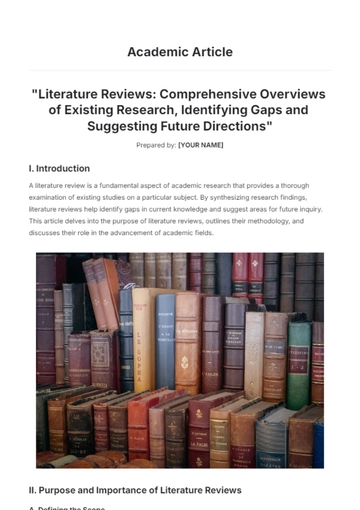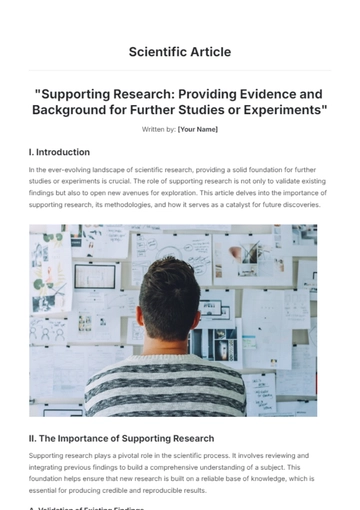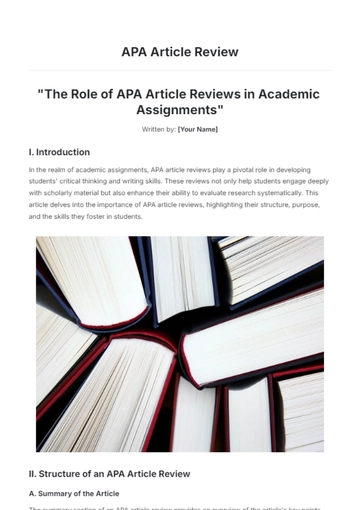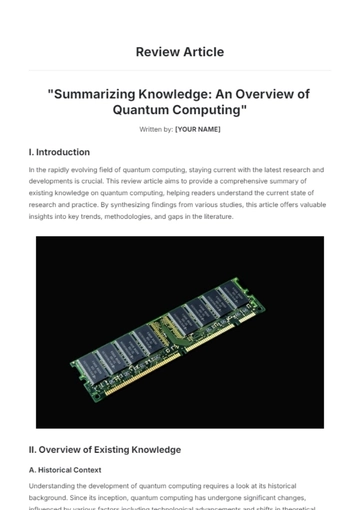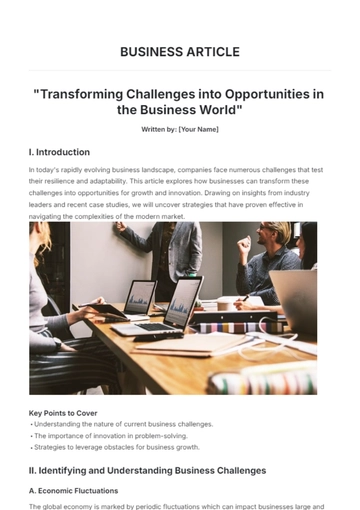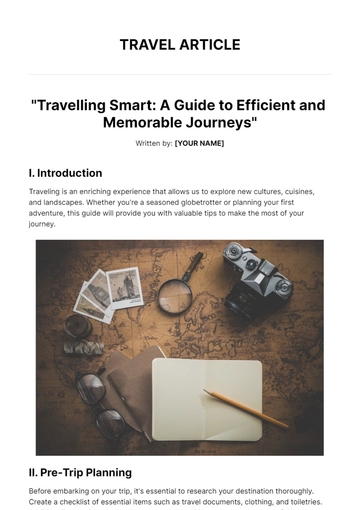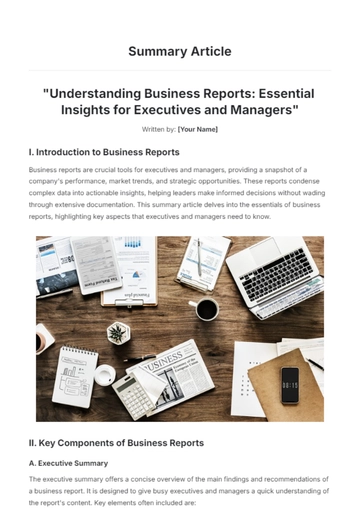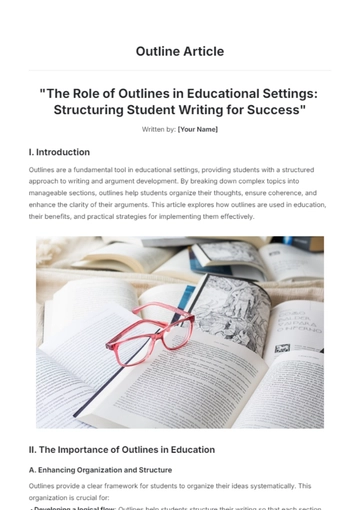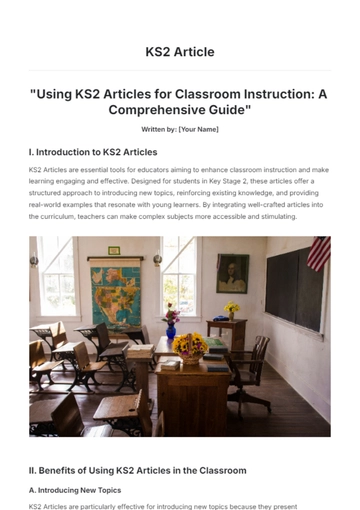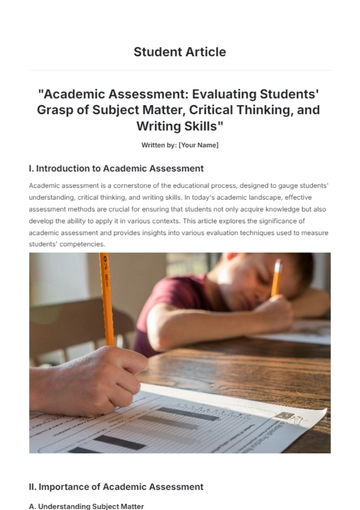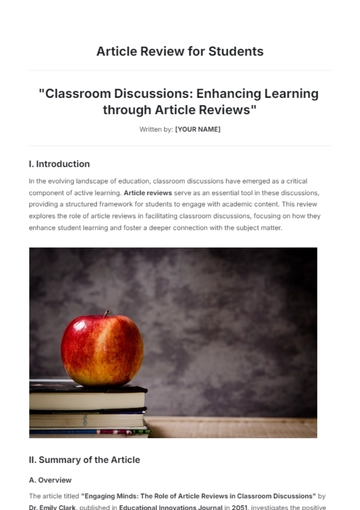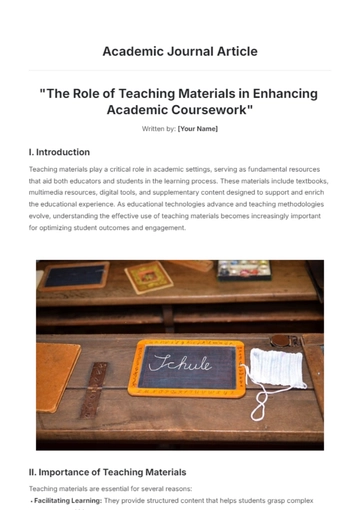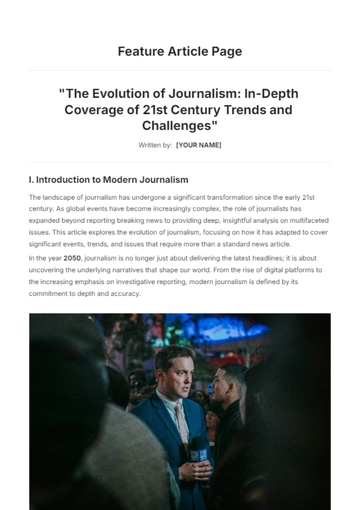Free Editable Article
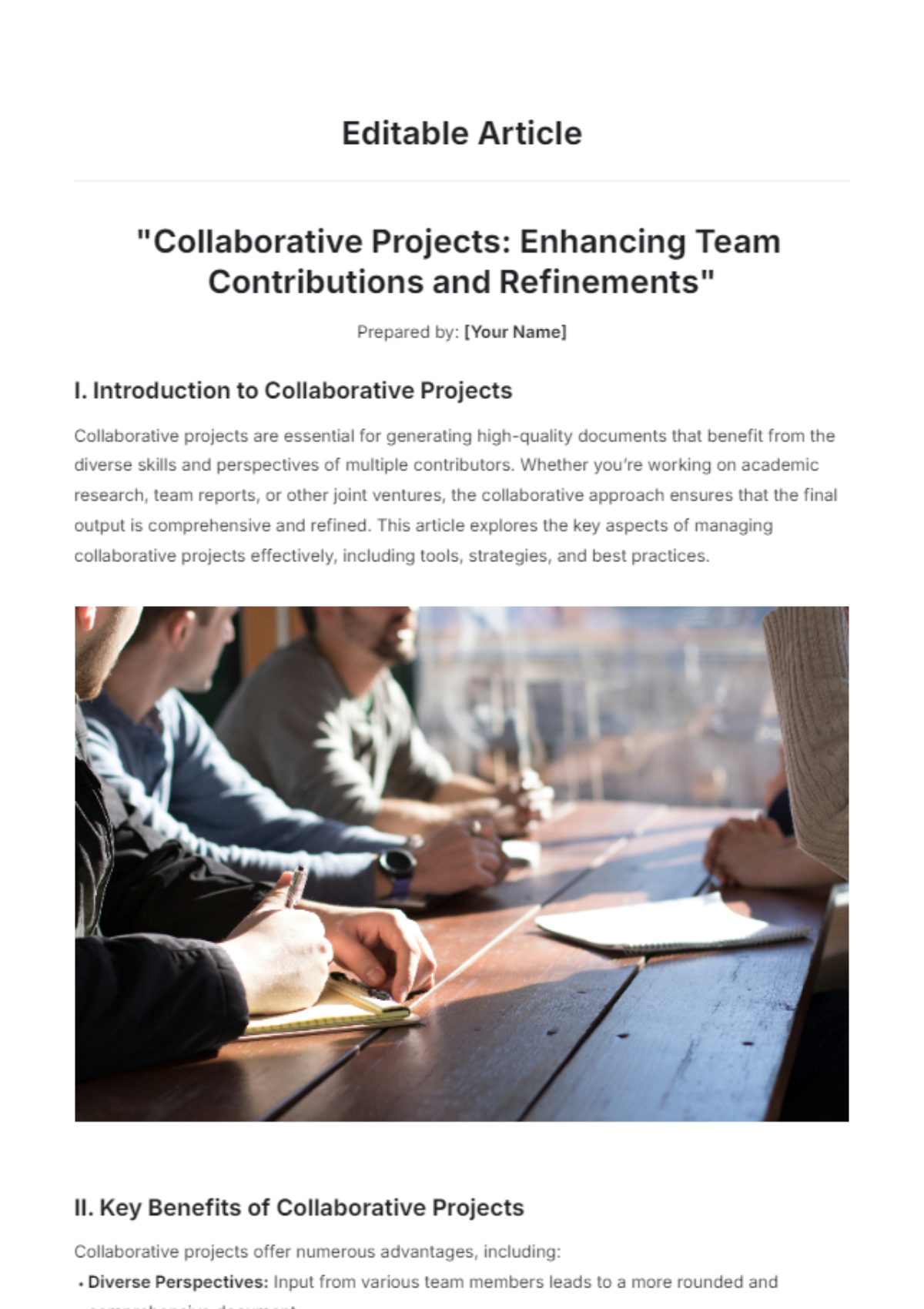
"Collaborative Projects: Enhancing Team Contributions and Refinements"
Prepared by: [Your Name]
I. Introduction to Collaborative Projects
Collaborative projects are essential for generating high-quality documents that benefit from the diverse skills and perspectives of multiple contributors. Whether you’re working on academic research, team reports, or other joint ventures, the collaborative approach ensures that the final output is comprehensive and refined. This article explores the key aspects of managing collaborative projects effectively, including tools, strategies, and best practices.

II. Key Benefits of Collaborative Projects
Collaborative projects offer numerous advantages, including:
Diverse Perspectives: Input from various team members leads to a more rounded and comprehensive document.
Enhanced Accuracy: Multiple reviewers help catch errors and improve the quality of the content.
Increased Efficiency: Shared tasks and responsibilities speed up the project completion time.
Skill Utilization: Leveraging the specific skills of each team member can enhance the quality of the document.
III. Tools for Effective Collaboration
Selecting the right tools is crucial for successful collaborative projects. Consider the following options:
A. Document Editing Tools
Google Docs: Allows real-time collaboration and editing with version history tracking.
Microsoft Word Online: Offers similar features with integration into the Microsoft ecosystem.
B. Project Management Platforms
Trello: Provides boards and cards for organizing tasks and tracking progress.
Asana: Enables task assignment and project tracking with customizable workflows.
C. Communication Channels
Slack: Facilitates real-time messaging and file sharing.
Microsoft Teams: Integrates communication with document sharing and video conferencing.
IV. Strategies for Successful Collaboration

To ensure a smooth and productive collaborative project, follow these strategies:
A. Clear Objectives and Roles
Define Project Goals: Establish what the project aims to achieve.
Assign Roles: Clearly define each team member’s responsibilities to avoid overlap.
B. Regular Updates and Feedback
Scheduled Meetings: Hold regular meetings to discuss progress and address issues.
Feedback Loops: Implement mechanisms for ongoing feedback to refine the document continuously.
C. Version Control
Track Changes: Use tools that offer version control to manage updates and changes effectively.
Document History: Maintain a record of revisions to ensure that previous versions can be reviewed if necessary.
V. Common Challenges and Solutions
A. Communication Issues
Challenge: Miscommunication can lead to confusion and delays.
Solution: Use clear and concise communication channels and confirm understanding.
B. Conflicting Ideas
Challenge: Differing opinions can create conflicts.
Solution: Facilitate open discussions to resolve conflicts and integrate diverse viewpoints.
C. Time Management
Challenge: Coordinating schedules can be difficult.
Solution: Establish deadlines and use project management tools to track progress.
VI. Conclusion
Effective collaboration in projects requires careful planning, the right tools, and clear communication. By leveraging diverse perspectives and utilizing collaborative tools, teams can produce high-quality, well-refined documents. Embrace these strategies to enhance your collaborative efforts and achieve successful project outcomes.

- 100% Customizable, free editor
- Access 1 Million+ Templates, photo’s & graphics
- Download or share as a template
- Click and replace photos, graphics, text, backgrounds
- Resize, crop, AI write & more
- Access advanced editor
Streamline your writing with Template.net's Editable Article Template. Fully customizable and powered by our AI Editable Tool, this template makes content creation effortless. Perfect for any topic, it's designed for easy edits, saving you time and ensuring consistency. Ideal for professionals and beginners alike, it adapts to your needs with just a few clicks.
